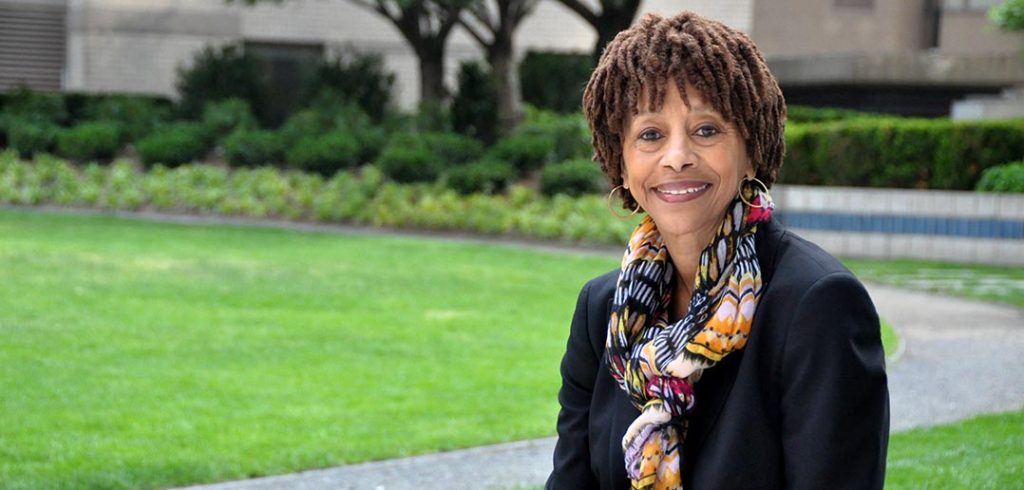She was touring the country as a U.N. investigator, and it didn’t take long for the reality to emerge: Haitians were being forced into an undocumented, poverty-stricken underclass because of racial discrimination that was “quite alarming.”
“There was [a sense]that Haitians were not fully human beings,” said McDougall, Distinguished Scholar-in-Residence at Fordham Law School’s Leitner Center for International Law and Justice.
She describes this and other experiences in a new book, The First United Nations Mandate on Minority Issues (Brill Nijhoff, 2015), about her six years of investigating the oppression of minority communities worldwide.
McDougall served as first U.N. Independent Expert on Minority Issues, a job created in 2005 to help implement the U.N. General Assembly’s Declaration on the Rights of Persons belonging to National or Ethnic, Religious and Linguistic Minorities, adopted in 1992. She reported on the problems facing Macedonian and Pomak communities in Bulgaria, people of African descent in Colombia, the Roma in Bulgaria and Greece, and other minority groups during visits to 17 countries.
But her position was ill-defined from the start. Unlike the United Nations’ independent experts in other areas, McDougall had a limited job description that was silent on whether she could travel to countries and investigate complaints. So she interpreted this silence as permission, embarking on country visits that created a precedent for her successors while also strengthening and clarifying the language of the U.N. minority rights declaration.
“This is the whole point about documenting the first mandate, because the mandate became more than simply words on a piece of paper” during her tenure, she said.
The book describes her findings in various countries as well as some of the possibilities and challenges that come with the job. She met plenty of resistance—like the “diplomatic ‘no’” some countries gave when she asked to visit, or the obfuscation that was apparent in her interviews with government officials at all levels in the Dominican Republic.
“They said the exact same thing” in denying any problem with racism, McDougall said. But her other interviews showed institutionalized discrimination that kept Dominicans of Haitian descent from registering their children as citizens, shutting the children out of schooling and health care and, later in life, legitimate work.
“Since they don’t have the proper papers, they are ripe for exploitation in terms of their labor,” McDougall said, recalling one destitute Haitian community at the end of an unpaved road that struggled to survive on the income from seasonal work at area plantations.
“They have no electricity, they have no plumbing system, they have no school, they have no health system, they can’t get out of there,” McDougall said. “Some were born there, and many will die there without any kind of support. It was a very outrageous system.”
When she and a colleague presented their findings to a government minister in advance of a press conference, the minister “went berserk” with denunciations of their motives.
“I don’t think I went to any country where they were extremely happy about my findings,” McDougall said, unflappably.
Ideally, such findings can be used to bring international pressure or spur countries to address simmering problems within their borders. In another one of her trips, to the ghettos outside Paris, she found discrimination against minorities that kept them from getting even the relatively low-skilled jobs in the French gendarmerie, or police force.
The predictions in her report were borne out by the riots that occurred a few years later.
“Many told me they played by the rules, all the rules, and they are still rejected—for jobs, for basic services,” she said. “People will accept that kind of treatment only for so long.”

